Judicial System In India
Judicial system in india. The judicial system of any nation plays an important role in upholding and promoting the rights of the citizens. The judicial system or judiciary consists of judges and other magistrates. Jurisdiction of courts in india Jurisdiction in a broad manner means the degree of the power of the court to entertain suits appeals and applications.
Independence of the Indian judiciary is the core element of the Indian constitution which can neither be taken nor be amended by any of law or act passed by the government. The judicial system of India is mainly consisting of three types of courts- the Supreme Court The High Courts and the subordinate courts. Judiciary is its own boss which has to look after and protect the sanctity of justice among the masses or citizens.
Under the constitution of India the supreme court is the final court of appeal. There are different level of Judiciary in India different types of the court depending on the tier of Jurisdiction with Supreme Court on the top followed by High Court in each state and district Judge sitting in District courts and magistrate of second class and civil judge junior division at the. Of India accepts that there is 40 shortage of judicial staff 16 The vast number of cases pending in the Supreme Court as well as the other lower courts has defeated the very purpose of the judicial system.
The Indian judicial system was formed by the British during their colonial rule in the country. Indian judicial system takes care of the maintenance of law and order in the. Judicial System or the court system is furthermore the Judiciary System.
The judiciary of India takes care of maintenance of law and order in the country along with solving problems related to civil and criminal offences. At the tops of the Indian judicial system is the Supreme Court that is followed by High Courts of all the states. The development of Indian Judicial System or legal history of India can be convenienty traced through the following phases.
The court has the power to decide and enforce the law resolve disputes. The judiciary system that is followed in India is based on the British Legal System that was prevalent in the country during pre-independence era. The Judiciary system of Bharat is law and rules express for citizens government assistance.
These courts have jurisdiction over a state a union territory or a group of states and union territories. Types of Courts in India There are 3 types of courts in India- Judiciary Supreme court High court District courts.
Indian Judicial System.
This system is known as the Common Law System in which the judges develop the laws with their. Judicial System of India consists of Supreme Court High Court District Court or Subordinate Court. 1321 First Phase From the point of view of chronology the beginning of the Indian Judicial System can be traced back to Anglo-India era when the judicial system was at. Indias judicial system is made up of the Supreme Court of India at the apex of the hierarchy for the entire country and twenty-one High Courts at the top of the hierarchy in each State. Judicial System or the court system is furthermore the Judiciary System. It is organized on pyramidal form. It interprets the Constitution and strikes down any that is not in conformity with it. Under the constitution of India the supreme court is the final court of appeal. In its strict sense jurisdiction means the extent of the authority of a court to administer justice not only with reference to subject-matter of the suit but also to the local and pecuniary limits of jurisdiction.
There are different level of Judiciary in India different types of the court depending on the tier of Jurisdiction with Supreme Court on the top followed by High Court in each state and district Judge sitting in District courts and magistrate of second class and civil judge junior division at the. Finally there are Civil Judges and Magistrates of second class functioning at the bottom of this hierarchy of the courts. The Judiciary system of Bharat is law and rules express for citizens government assistance. Indian Judicial System. Indian Judicial System The three-tiered system of Indian. Immediately below the Supreme Court are the various High Courts and below them are be subordinate courts in each state. Independence of the Indian judiciary is the core element of the Indian constitution which can neither be taken nor be amended by any of law or act passed by the government.
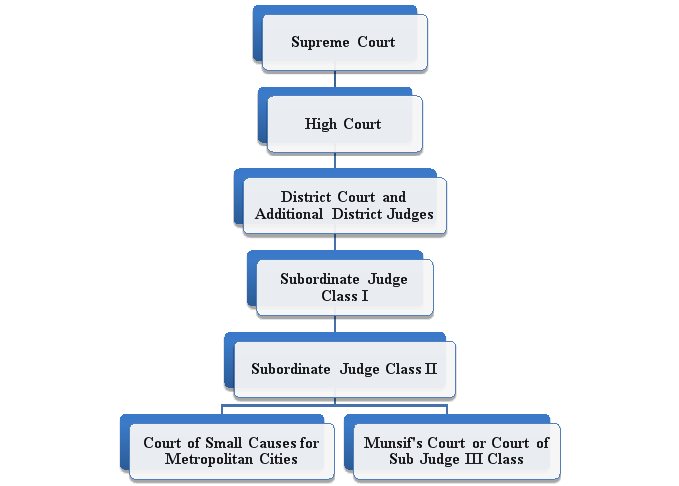

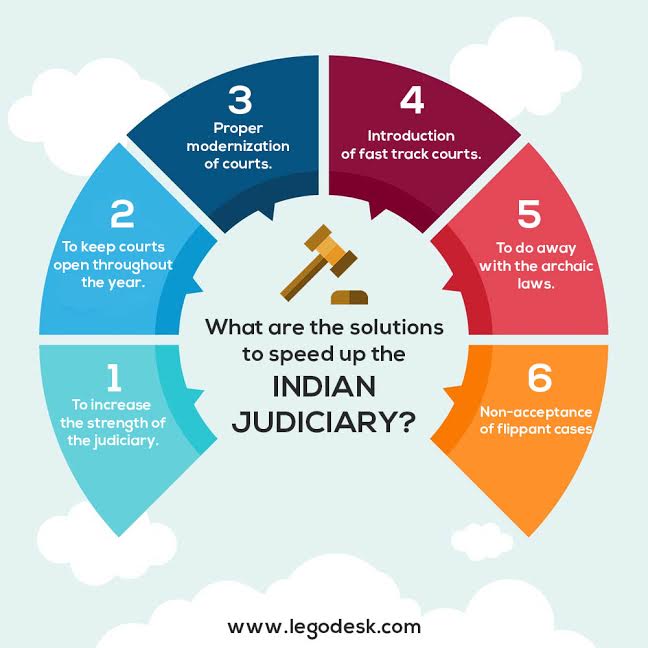
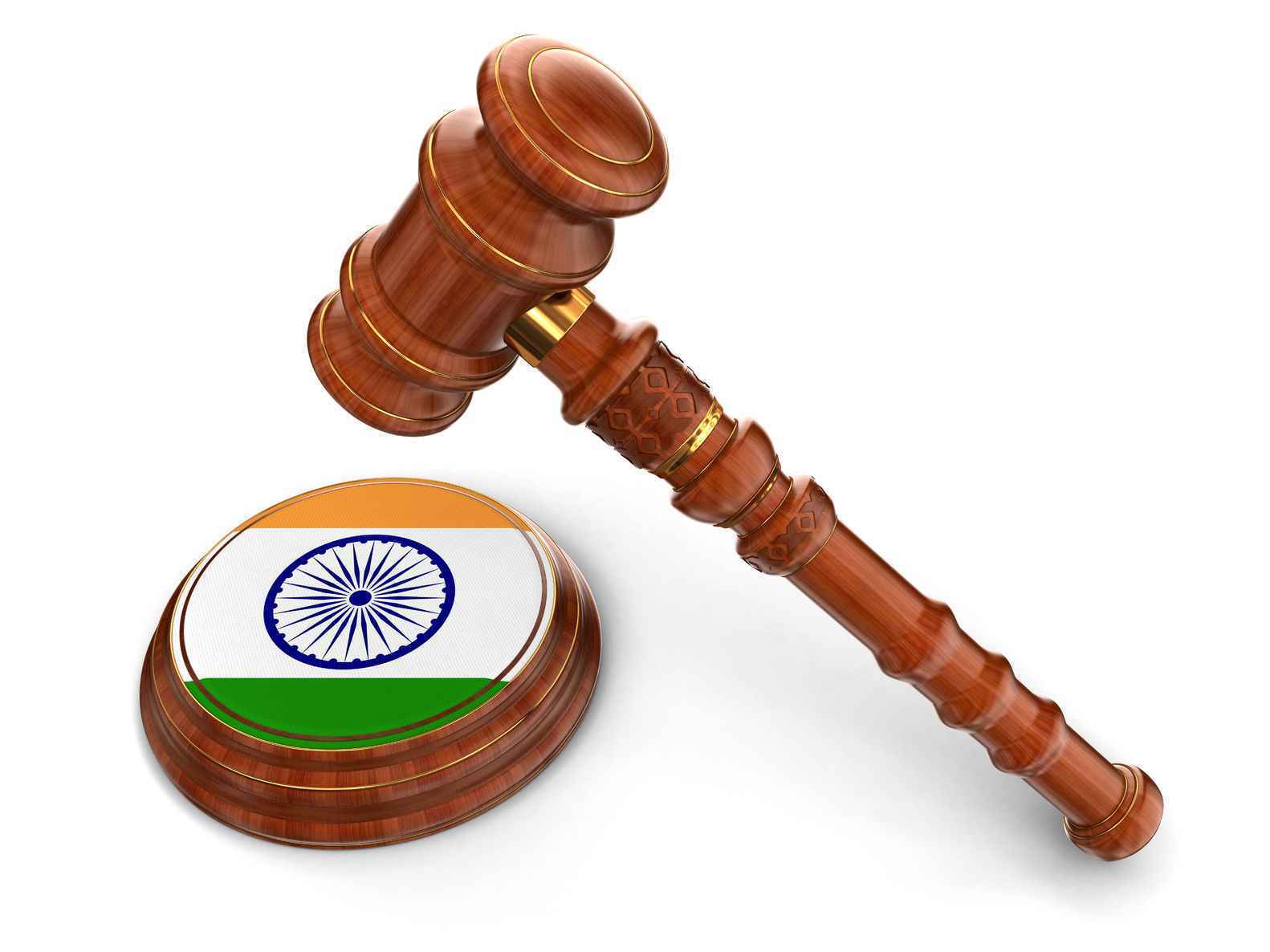
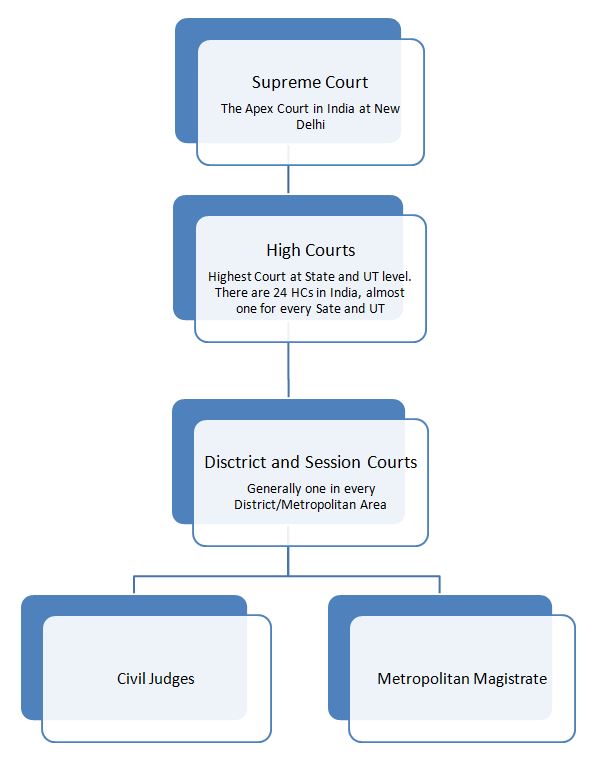



.jpg)
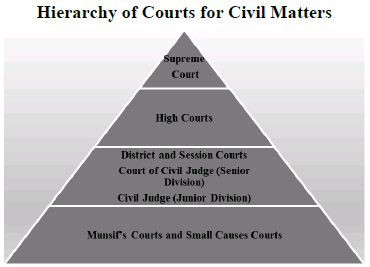








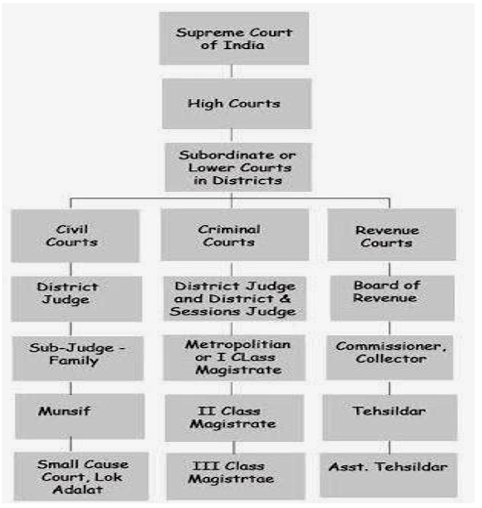




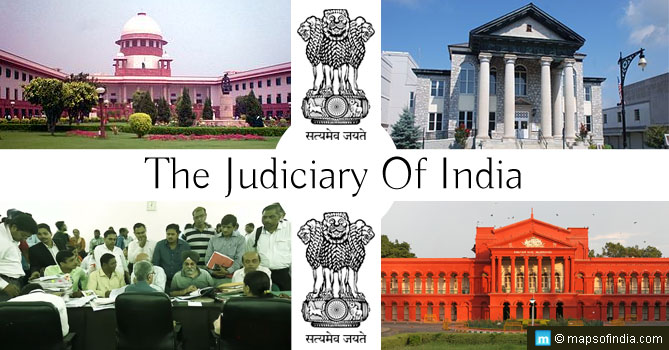






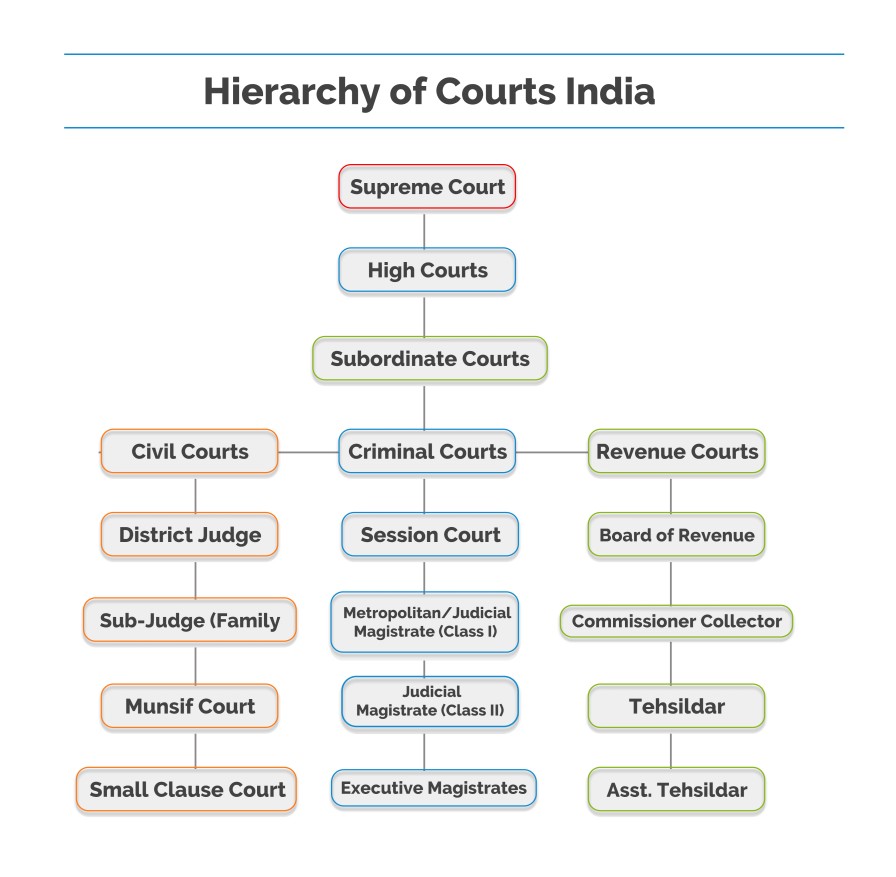







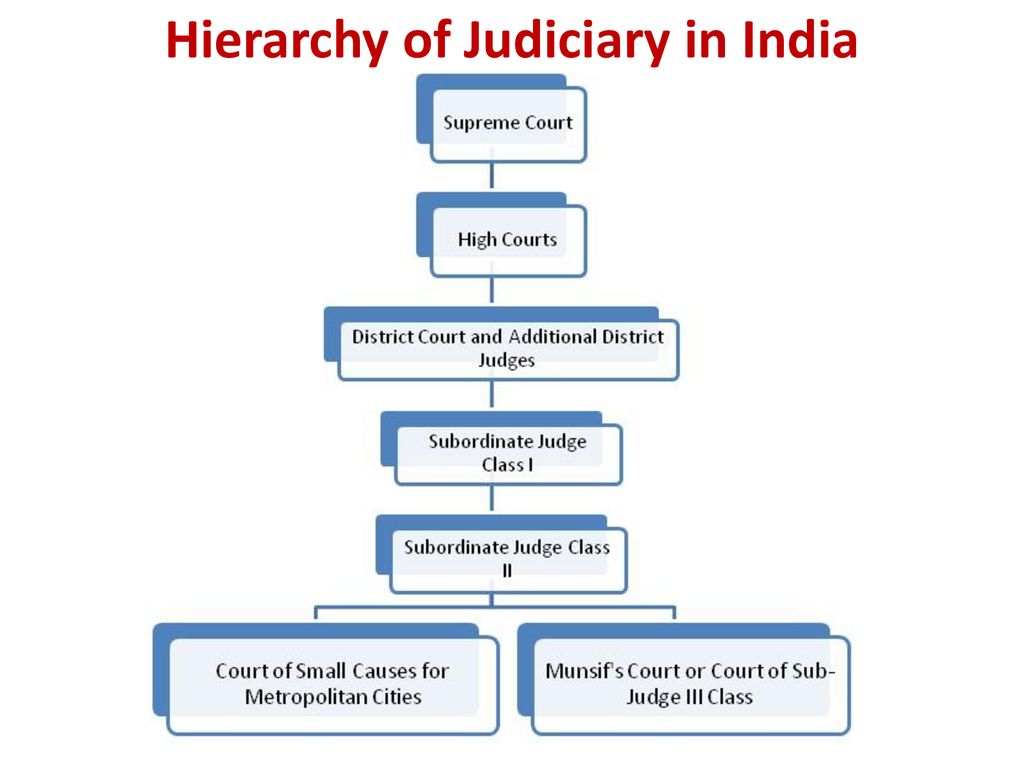
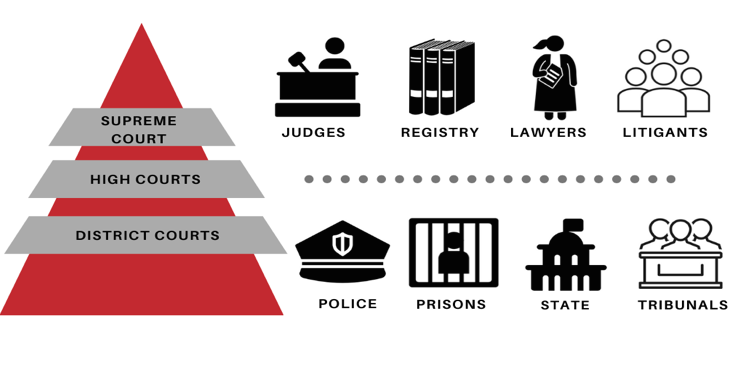


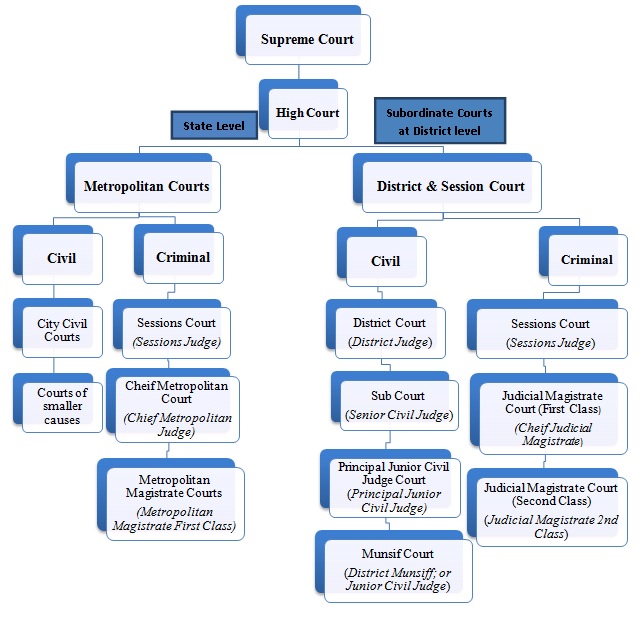

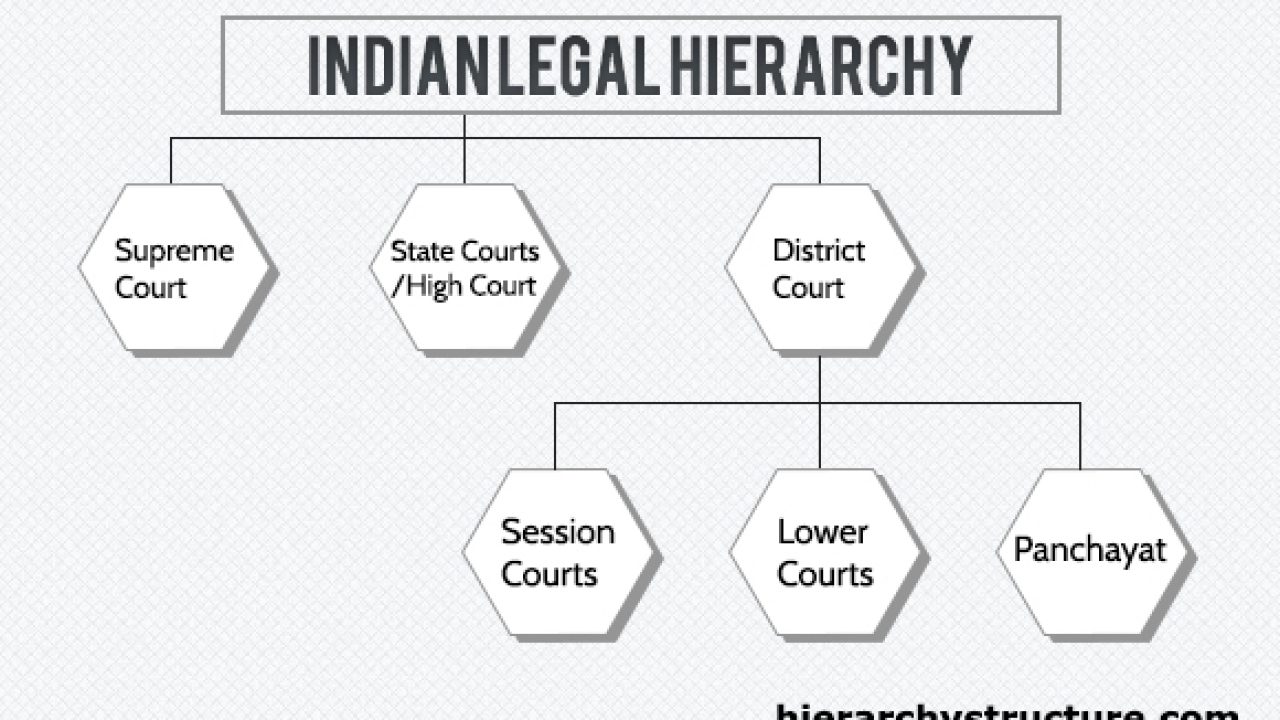

Post a Comment for "Judicial System In India"